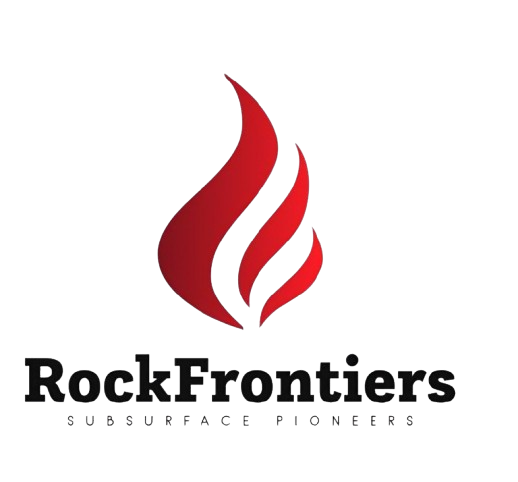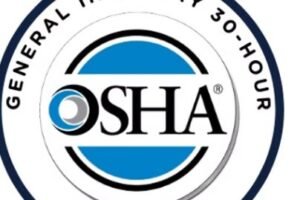📘 Seismic Structural Interpretation Techniques
🔎 Course Description This advanced course develops participants’ skills in interpreting seismic data for structural geology applications. Covering fault interpretation, fold analysis, trap identification, and integration with well and geological data, the course enables professionals to build structurally sound subsurface …
Overview
🔎 Course Description
This advanced course develops participants’ skills in interpreting seismic data for structural geology applications. Covering fault interpretation, fold analysis, trap identification, and integration with well and geological data, the course enables professionals to build structurally sound subsurface models for exploration and development projects. Practical sessions will emphasize reducing uncertainties in structural mapping and risk assessment.
🎯 Learning Objectives
✅ Identify and map structural features on 2D and 3D seismic data
✅ Apply seismic attribute tools to enhance structural interpretation
✅ Integrate seismic with well and geological data for accurate models
✅ Interpret complex structural styles including thrusts, inversion, and salt tectonics
✅ Assess structural traps and evaluate exploration risks
👥 Who Should Attend
-
Geophysicists, seismic interpreters, and structural geologists
-
Exploration and development geologists
-
Reservoir engineers seeking better understanding of structure
-
Technical team leads and managers in E&P companies
🗂️ Training Format
✅ Hands-on interpretation on real seismic datasets
✅ Instructor-led lectures with real-world case studies
✅ Group exercises on fault and horizon mapping
✅ Seismic workstation demonstrations (if available)
✅ Daily recaps and Q&A sessions
📅 Detailed Daily Agenda with Time Breaks
📅 Day 1: Fundamentals of Structural Geology and Seismic Data
| Time | Topic |
|---|---|
| 08:30 – 09:00 | Registration, Introductions, Course Overview |
| 09:00 – 10:30 | Review of Structural Geology Principles |
| 10:30 – 10:45 | ☕ Coffee Break |
| 10:45 – 12:15 | Seismic Data Types and Acquisition Considerations |
| 12:15 – 13:15 | 🍽 Lunch |
| 13:15 – 14:45 | Seismic Resolution and Limitations in Structural Interpretation |
| 14:45 – 15:00 | ☕ Coffee Break |
| 15:00 – 16:30 | Introduction to Seismic Workstations and Interpretation Software |
📅 Day 2: Horizon and Fault Interpretation Techniques
| Time | Topic |
|---|---|
| 08:30 – 10:00 | Principles of Horizon Picking in Structurally Complex Areas |
| 10:00 – 10:15 | ☕ Coffee Break |
| 10:15 – 12:15 | Fault Recognition: Reflection Terminations and Indicators |
| 12:15 – 13:15 | 🍽 Lunch |
| 13:15 – 14:45 | Hands-On Exercise: Horizon and Fault Mapping on 2D/3D Data |
| 14:45 – 15:00 | ☕ Coffee Break |
| 15:00 – 16:30 | Validating Structural Interpretations with Well Data |
📅 Day 3: Advanced Structural Styles and Trap Analysis
| Time | Topic |
|---|---|
| 08:30 – 10:00 | Interpretation of Folds, Reverse Faults, and Inversions |
| 10:00 – 10:15 | ☕ Coffee Break |
| 10:15 – 12:15 | Salt Tectonics: Imaging and Interpretation Challenges |
| 12:15 – 13:15 | 🍽 Lunch |
| 13:15 – 14:45 | Structural Traps: Identification and Risk Assessment |
| 14:45 – 15:00 | ☕ Coffee Break |
| 15:00 – 16:30 | Hands-On Exercise: Structural Trap Mapping |
📅 Day 4: Seismic Attributes and Structural Interpretation Enhancement
| Time | Topic |
|---|---|
| 08:30 – 10:00 | Seismic Attributes for Fault and Fracture Detection |
| 10:00 – 10:15 | ☕ Coffee Break |
| 10:15 – 12:15 | Coherence, Curvature, and Spectral Decomposition Tools |
| 12:15 – 13:15 | 🍽 Lunch |
| 13:15 – 14:45 | Integrating Attributes into Structural Interpretation |
| 14:45 – 15:00 | ☕ Coffee Break |
| 15:00 – 16:30 | Group Exercise: Attribute-Based Structural Mapping |
📅 Day 5: Building Structural Frameworks and Uncertainty Analysis
| Time | Topic |
|---|---|
| 08:30 – 10:00 | Constructing Structural Frameworks for Geological Models |
| 10:00 – 10:15 | ☕ Coffee Break |
| 10:15 – 12:15 | Managing Uncertainties in Structural Interpretation |
| 12:15 – 13:15 | 🍽 Lunch |
| 13:15 – 14:45 | Final Exercise: Integrative Structural Interpretation Project |
| 14:45 – 15:00 | ☕ Coffee Break |
| 15:00 – 16:30 | Review, Discussion, and Certificate Ceremony |
📦 Materials Provided
✅ Course manual with key concepts and workflows
✅ Seismic datasets for exercises
✅ Templates for structural frameworks
✅ Certificate of Completion
Target audiences
- Reservoir Engineers, Geologists
You May Like
📘 Underbalanced Drilling (UBD) Techniques and Safety
🎯 Course Description: This intensive 5-day program focuses on Underbalanced Drilling (UBD) – an advanced technique used to drill wells where the hydrostatic pressure of the fluid is intentionally kept below formation pressure. Participants will learn how to implement UBD …
📘 IOSH Managing Safely
🎯 Course Description: A practical, 5-day program designed to help managers and supervisors learn how to manage safety and environmental responsibilities in their teams. Emphasis is placed on identifying risks, measuring performance, and leading safely using internationally recognized good practices. …
📘 IWCF Level 3 Well Control (Surface BOP)
🎯 Course Description: This is an intensive course aimed at drilling / well service personnel needing to gain supervisory competence in well control using surface blow‑out preventers (BOP) under the IWCF standard. It covers theory, hands‑on practice, and assessments for …
Advanced Specialist Petroleum GeoMechanics
📘 Course Description: This elite-level course is tailored for petroleum geomechanics specialists and senior subsurface professionals engaged in complex field development projects. It provides a deep technical dive into stress modeling, anisotropic rock behavior, coupled geomechanical-reservoir simulation, fault/fracture mechanics, and …
📘 OSHA 30‑Hour General Industry Safety and Health
🎯 Course Description: This 5‑day course provides in‐depth knowledge of workplace safety and health in general industry sectors. It covers OSHA regulations, hazard recognition, safety programs, and industry best practices. Participants will gain the expertise needed to maintain a safe …






